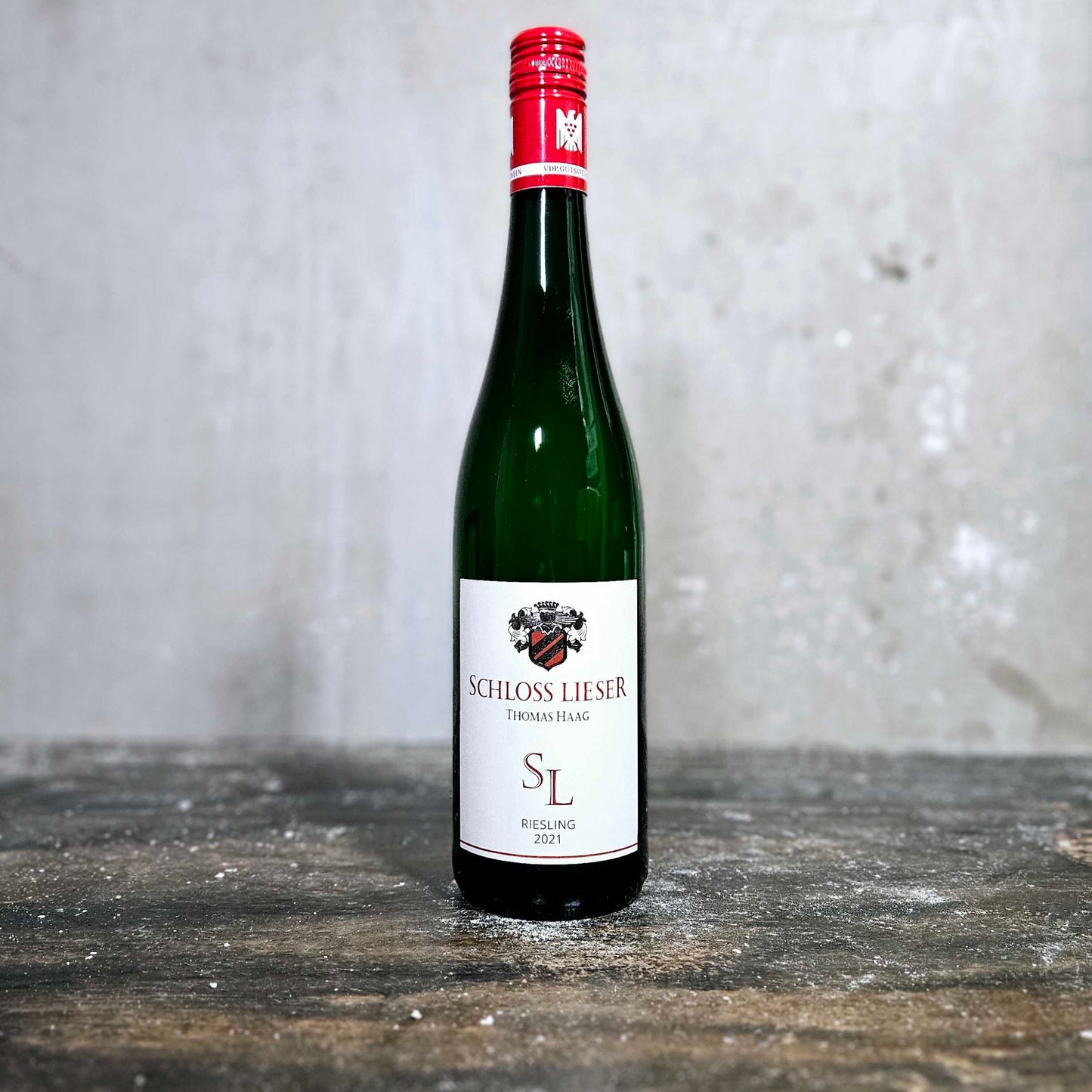Schloss Lieser
Schloss Lieser - SL Riesling Feinherb, Mosel, Germany (2021)
Schloss Lieser - SL Riesling Feinherb, Mosel, Germany (2021)
Couldn't load pickup availability
TASTING NOTES
Peaches and ripe apple, mineral with a crisp texture. Really well made wine that is built to age. While a cliché pairing, the wine's touch of sweetness makes this perfect for spicy food if you want to take the edge off.
| REGION | Germany > Mosel |
| GRAPE(S) | Riesling |
| VINTAGE | 2021 |
| ABV | 12.5% |
| FEATURES | Sustainable |
| SCALE | Off-Dry |
Located on a beautiful Neo-Renaissance castle built in 1875 for petroleum magnate Eduard Pricilla. Schloss Lieser has passed through a number of different hands and slid into a long decline until Thomas Haag, from the venerable Mosel wine-making family Weingut Fritz Haag, and his wife Ute took up the position of Head Winemaker and Director of the estate in 1992. At this time the estate was just six hectares, located almost entirely in the Grosse Lage (Grand Cru) Lieser Niederberg Helden.
After working at the winery for five years, by which time they had already restored much of the estate’s reputation, Thomas and Ute were able to purchase the property in 1997 and began slowly investing in top vineyard sites across the region.
Thomas’ was expected to take over his father Wilhelm Haag's important estate, Weingut Fritz Haag. However, having invested so much to rebuild Lieser, he stayed and his brother Oliver took over the family domaine in 2005.
Today Thomas and Ute own 25 hectares of eight Grosse Lagen (Grand Crus) spread over 185 different plots. Schloss Lieser enjoys the topmost rating in Germany’s several wine guides, the most widely respected of which, the Vinum Weinguide Deutschland, rates only two estates in the Greater Mosel five stars out of five: Schloss Lieser and Egon Müller!
Their children Lara and Niklas both studied at Geisenheim University in the Rheingau, the top wine-making school in Germany and have now joined the estate. They aim to be 100% organic in the coming years.
In the cellar, the fermentations are always spontaneous in stainless steel, except for cooler vintages where we employ some oak. They do not macerate the grapes and press cool with low pressure resulting in fine, elegant wines.
Fermentation takes about 6-10 weeks. After fermentation, wines are left on the gross lees for as long as needed and a further three to four months on the fine lees. Made in very reductive conditions, some wines take longer to be ready for bottling than others. They're always built to age.



